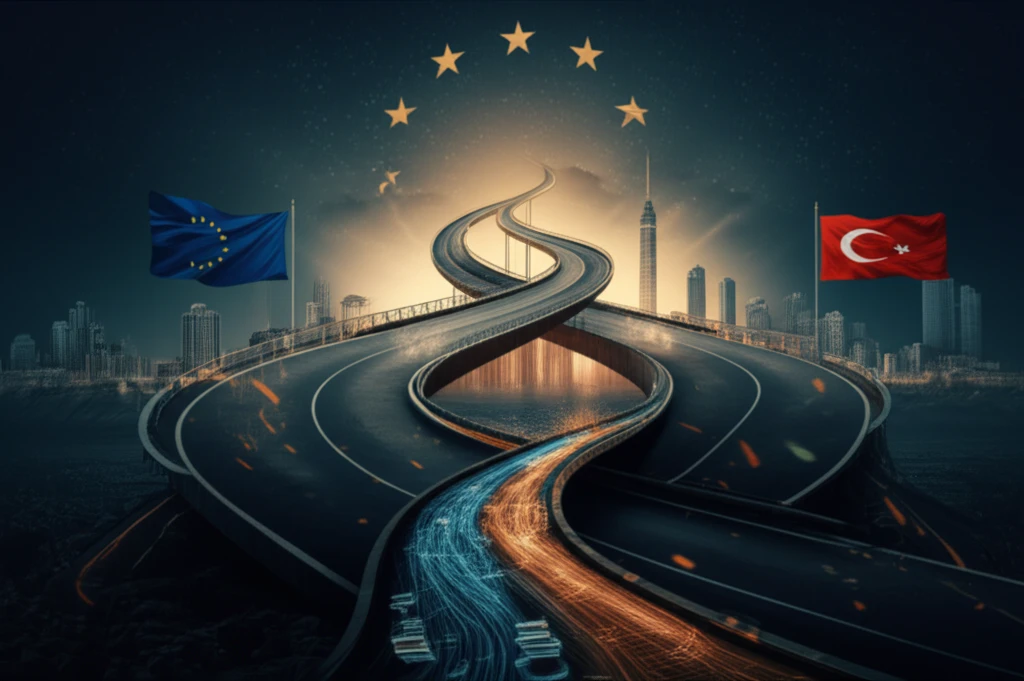
Bridging the Divide: How Turkey and the EU Can Rebuild Economic Ties
"Exploring the complexities of capital movement and integration processes between Turkey and the European Union, and what it means for future relations."
For decades, Turkey has been on a journey toward integration with the European Union, starting with the Ankara Agreement in 1963. Despite significant milestones like the establishment of a customs union in 1996 and Turkey's recognition as an EU candidate in 1999, the path has been anything but smooth. Negotiations that began with optimism have since faced serious political hurdles, leading to what some might call a frozen state. Yet, amidst these challenges, the fundamental question remains: Has real economic integration advanced beyond the initial stages of a customs union?
At the heart of this query lies the concept of free movement of capital—a cornerstone of the EU's single market. This principle, one of the four fundamental freedoms, dictates the unrestricted flow of investments and financial resources between member states. But how does Turkey, as a candidate country, navigate these requirements, and what progress has it made in aligning its policies with those of the EU? Understanding the legal framework and the practical realities of capital movement is crucial for assessing the true extent of integration between Turkey and the EU.
This article aims to explore the multifaceted relationship between Turkey and the EU, with a particular focus on capital movements. By examining both the legal obligations and the actual flow of investments, including foreign direct investment (FDI), we can gain valuable insights into the dynamics of this partnership. What are the key factors driving or hindering economic integration? How does Turkey's investment climate compare to that of the EU? And what steps are needed to foster a more robust and mutually beneficial economic relationship?
Decoding EU-Turkey Integration: More Than Just a Customs Union?

The economic literature suggests that successful integration between independent countries is a phased process, evolving from a free trade area to a customs union, then a common market, and ultimately an economic and monetary union. Respecting this logical progression is key; trade liberalization should pave the way for the free movement of capital. Without sufficient trade flows, foreign direct investment (FDI) may struggle to flourish.
- Economic Integration as a Journey: Viewing integration as a staged process, starting from basic trade agreements to full economic unity.
- The Importance of Sequencing: Ensuring that trade liberalization precedes capital movement liberalization.
- Development Disparities: Addressing the challenges that arise when integrating economies have different levels of development through supportive policies and funding.
The Path Forward: Overcoming Obstacles and Fostering Deeper Integration
The journey of economic integration between Turkey and the EU has been marked by both progress and persistent challenges. While the establishment of a customs union laid a foundation, the process has not significantly propelled membership negotiations forward. Political obstacles continue to loom large, potentially more so than in previous EU enlargement efforts. Accepting permanent exceptions in sensitive areas could undermine fundamental principles of non-discrimination and equality among EU member states, creating complex legal and political issues. Moving forward requires addressing these core issues, promoting further liberalization, and recognizing the importance of FDI in Turkey's ongoing economic development.
